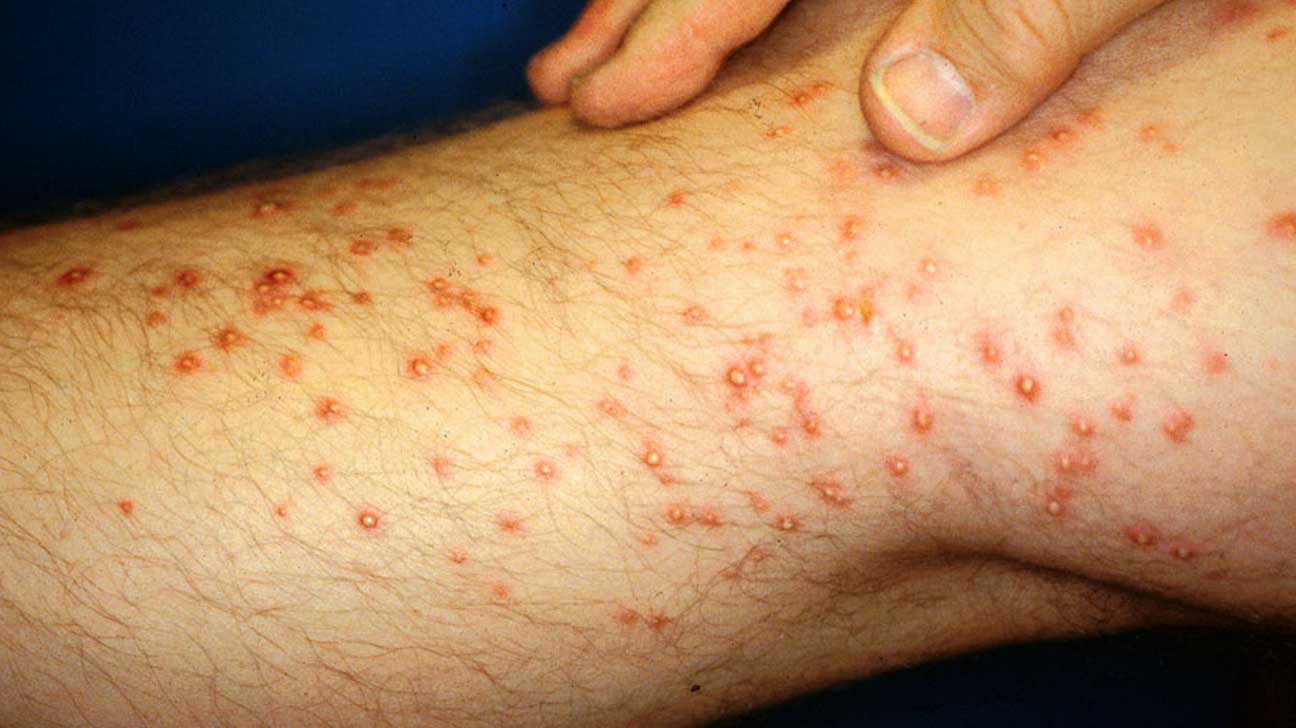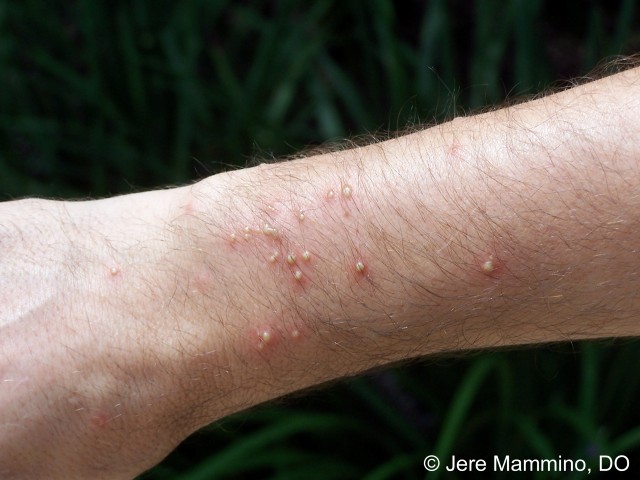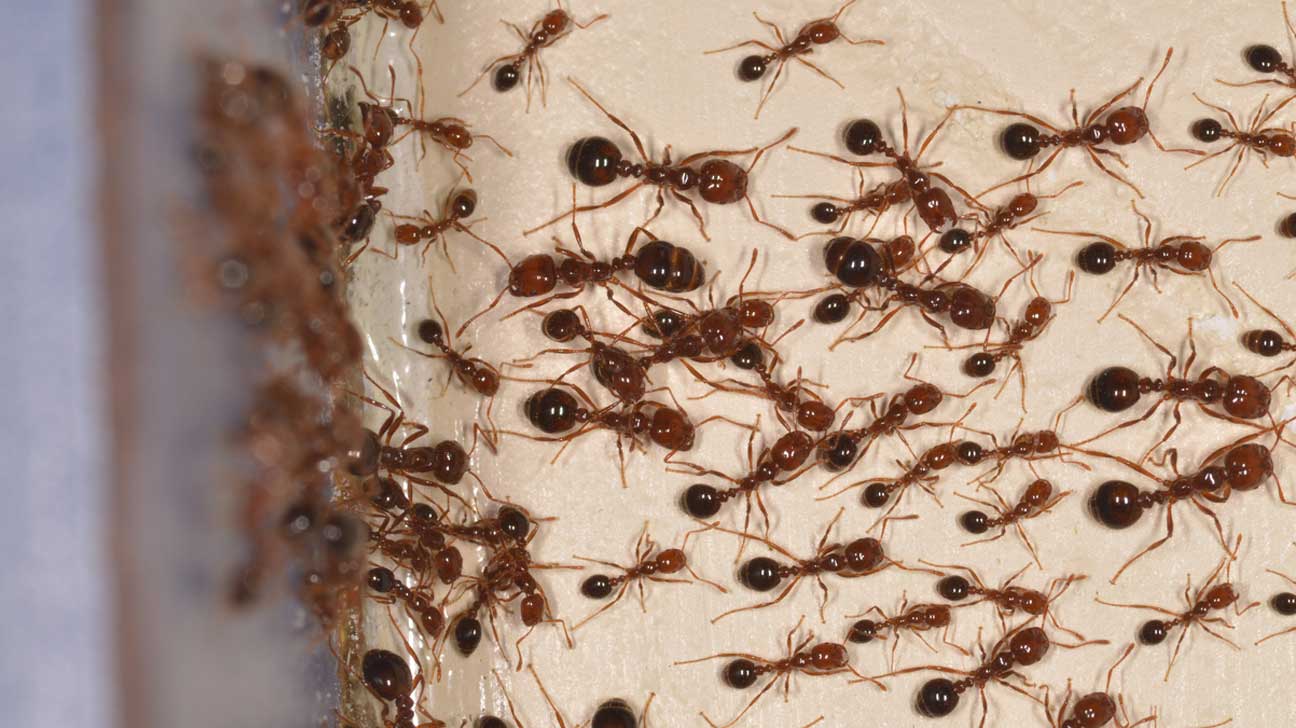A red ant bite can cause serious reactions due to venom in their sting. Seek medical help for allergic reactions.
Red ant bites can be more than just a nuisance—they can pose a serious threat to your health. Generally found in warmer climates, red ants are known for their potent venom that can cause pain, itching, swelling, and redness of the skin.
If you’re bitten by a red ant, it’s crucial to pay attention to any signs of allergic reactions or severe complications, such as difficulty breathing, rapid heartbeat, or flu-like symptoms, and seek immediate medical attention. Understanding the potential dangers of red ant bites and knowing how to effectively manage them can help prevent any serious health issues that may arise as a result of these tiny yet mighty insects.
The Dangers Of Red Ant Bites
Red ant bites can cause intense pain, itching, swelling, and redness due to their toxic alkaloid venom. In allergic individuals, a single bite can lead to symptoms of anaphylaxis within minutes, requiring immediate treatment. If you experience difficulty breathing, a rapid heartbeat, or flu-like symptoms, seek emergency medical care.
Venomous Sting
Red ants, also known as fire ants, possess a venomous sting that can be quite dangerous. When these tiny creatures attack, they can inject a toxic alkaloid venom known as solenopsin into your body. This venom not only causes immediate pain but also triggers itching, swelling, and redness of the skin. What makes it worse is that fire ants can sting you multiple times, intensifying the discomfort and potential harm they can cause.Allergic Reactions
If you’re unlucky enough to have an allergic reaction to a red ant bite, the consequences can be even more severe. Some individuals may experience a condition known as anaphylaxis, which can manifest within minutes of getting stung. Symptoms of anaphylaxis include intense itching, hives, difficulty breathing, throat swelling, and even a drop in blood pressure. It is crucial to seek immediate medical attention if you develop any of these symptoms after being bitten by a red ant.In addition to allergic reactions, red ant bites can lead to systemic reactions. This means that the sting can affect your entire body, causing symptoms such as stomach cramps, diarrhea, nausea, vomiting, and a swollen tongue. These systemic reactions can be quite distressing and may require prompt medical intervention.To minimize the chances of getting bitten by a red ant, it’s essential to take precautions when spending time in areas where fire ants are prevalent. Avoid stepping on their nests, wear protective clothing, and use insect repellent containing DEET. If you do get bitten, be sure to clean the affected area with soap and water and apply ice to reduce inflammation.Remember, the dangers of red ant bites should not be taken lightly. It’s always better to be safe than sorry, so if you suspect an allergic reaction or experience severe symptoms after being bitten, don’t hesitate to seek medical help.Identifying Red Ant Bites
If you’re bitten by a red ant, be cautious of allergic reactions or serious complications such as difficulty breathing or flu-like symptoms. Seek medical attention immediately if you experience any of these symptoms. Red ant bites can cause pain, itching, swelling, and redness of the skin due to the venom they inject.
Instant Pain
When a red ant bites you, you may feel an immediate sharp pain.
The intensity of pain can vary from person to person.
Itching And Skin Irritation
Red ant bites can cause itching and irritation on the skin.
Some people may experience swelling and redness around the bitten area.
Treatment And Management
Understanding how to treat and manage a red ant bite is crucial for minimizing discomfort and potential complications. Whether opting for home remedies or seeking medical treatment, prompt action is essential.
Home Remedies
- Wash the affected area with soap and water
- Apply a cold compress to reduce swelling
- Use calamine lotion or aloe vera gel to soothe itching
- Elevate the affected limb to reduce pain
Medical Treatment
- If symptoms worsen or an allergic reaction occurs, seek emergency medical help
- Doctors may prescribe antihistamines or corticosteroids for severe reactions
- In rare cases of anaphylaxis, epinephrine injections may be necessary
- Regularly monitor the bite for signs of infection and consult a healthcare professional if necessary
:max_bytes(150000):strip_icc()/FireAntBite-9f9561b55155424b997d2bbb6cbccc7a.jpg)
Credit: www.health.com
Preventing Red Ant Bites
Fire ants’ venomous bites cause pain, itching, swelling, and redness. Immediate treatment and monitoring can prevent serious complications post a red ant bite, including allergic reactions or systemic symptoms like cramps and vomiting. Seeking medical help is crucial for severe reactions like anaphylaxis.
Protective Clothing
Wearing the right protective clothing can significantly reduce your chances of getting bitten by red ants. Here are some essential tips to keep in mind:- Wear long-sleeved shirts and long pants to cover your arms and legs completely.
- Choose clothing made of thick materials that red ants can’t easily bite through.
- Tuck your pants into your socks or boots to prevent ants from crawling up your legs.
- Consider wearing gloves to protect your hands, especially if you’re working in an area known to have red ants.
Environmental Control
Taking control of your environment is another effective way to prevent red ant bites. Here are some steps you can take:- Keep your surroundings clean and free from piles of leaves, debris, and rubbish, as these can attract red ants.
- Regularly mow your lawn and trim bushes and shrubs to eliminate potential hiding places for red ants.
- Seal any cracks or gaps in windows, doors, and walls to prevent ants from entering your home or workspace.
- Ensure that food and drinks are properly stored in sealed containers to avoid attracting red ants.
Seeking Medical Attention
While most red ant bites may cause minor discomfort and irritation, it’s crucial to be aware of the potential risks associated with their bites. Seeking medical attention is necessary if you experience severe symptoms or allergic reactions after getting bitten by a red ant. Here’s what you need to know:
Signs Of Anaphylaxis
If you notice any signs of an allergic reaction such as difficulty breathing, rapid heartbeat, or flu-like symptoms after a red ant bite, it’s essential to seek immediate medical help. Anaphylaxis is a severe allergic reaction that can be life-threatening and requires prompt medical intervention.
Emergency Response
When encountering severe symptoms following a red ant bite, it’s crucial to seek emergency medical assistance. Remember, swift action is vital when dealing with potential anaphylactic reactions. Don’t hesitate to call for emergency help or head to the nearest hospital for urgent care.

Credit: www.healthline.com

Credit: www.aocd.org
Frequently Asked Questions Of What If A Red Ant Bites You
Is It Ok If A Red Ant Bites You?
A red ant bite can cause serious reactions due to venom. Seek medical attention if signs of allergic reactions or complications occur.
How Harmful Are Red Ants?
Red ants have a venomous sting that can cause pain, itching, swelling, and redness of the skin. They can sting multiple times, injecting toxic venom known as solenopsin. In some cases, red ant bites can cause serious allergic reactions and complications.
Immediate medical attention may be necessary if you experience symptoms such as difficulty breathing, increased heart rate, or flu-like symptoms.
Do Red Ants Carry Poison?
Yes, red ants carry poison in their sting, which can cause pain, itching, swelling, and redness on the skin. In some cases, they can also cause intense allergic reactions that may require emergency treatment.
Do Red Ants Make You Itch?
Yes, red ants can make you itch due to the venom they inject into your skin when they sting you. If you experience intense itching or allergic reactions, seek medical attention.
Conclusion
A bite from a red ant can lead to serious reactions, including allergic reactions and complications. Red ants are venomous and their sting can cause pain, itching, swelling, and redness of the skin. Some people may even experience symptoms of anaphylaxis within minutes of being stung.
If you notice any signs of an allergic reaction or serious complication, it is important to seek immediate medical attention. It is best to avoid red ants and take necessary precautions to prevent getting bitten. Stay safe and protected!

I’m MD Tanvir, and I bring years of expertise gained from working closely with pest control companies to the forefront. My journey in the industry has inspired me to launch Bug Battler, a platform aimed at equipping people with the know-how to combat pests autonomously. Through Bug Battler, I aim to empower individuals with practical insights to tackle pest infestations effectively.

